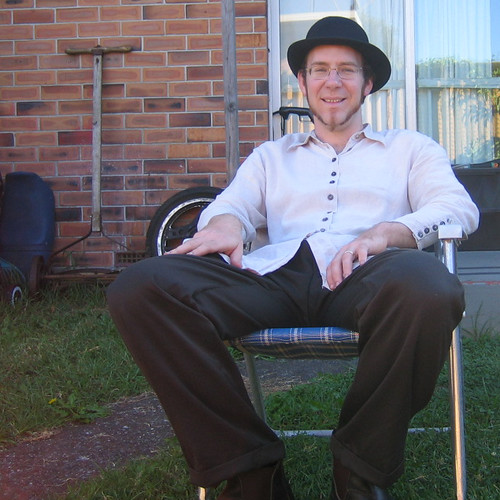For the new year, we plan to find 2% by halving our regular butter and sugar consumption. These are mostly used for baking, for which we will increasingly use margarine. We are testing various recipes with less sugar, and may alter our selection of baked treats. As a side benefit, this could be healthier.3
We want to make the remaining 1% savings amongst our "irregular" consumption: rarely taken actions or supplies for special occassions. These are the source of all variation recorded between this year and last, as we haven't performed a new baseline audit and continue to use our 2010 figures. The very irregularity of this consumption makes it harder to work with. Over time we will expect continuing fluctuation, but require an underlying downward trend.
Accurately reporting this will require an improvement in our accounting practise. A likely first step will be to amortise the big figures, a practise we have so far applied only to the house. Our new laptop will be used over several years, but we thought there would be enough similar items from year to year to smooth out. That will be less and less the case as we make smarter purchases.4 We may also plan to fly domestically once every n years, rather than on a most-years basis, and budget that into our regular baseline.
__________
1) With world population expected to rise to perhaps 9 billion by 2050, the per capita sustainable emissions level will presumably decrease.
2) 20% of our current emissions are due to public services we have no direct choice about consuming. Yesterday Heather initiated conversation with a Dunedin city councillor on this very topic, building on a hint of shared interest.
3) Going significantly dairy free would make a much bigger impact on the carbon numbers, as well as distance us from an industry which has recently expanded beyond the country's carrying capacity. We remain held back by uncertainty over how to supply Heather's calcium needs and reluctance to overhaul the complex dietary system we have developed for her over eight years of illness.
4) The laptop also stands out because we bought it new, rather than second hand. We have chosen to assign all emissions responsibility to the initial (retail) purchaser, so the choice between new and second-hand is much more stark in carbon terms than dollar terms. We could change this policy, at least on large items, which would be more accurate in many ways but opens the thorny question of how to apply depreciation.
